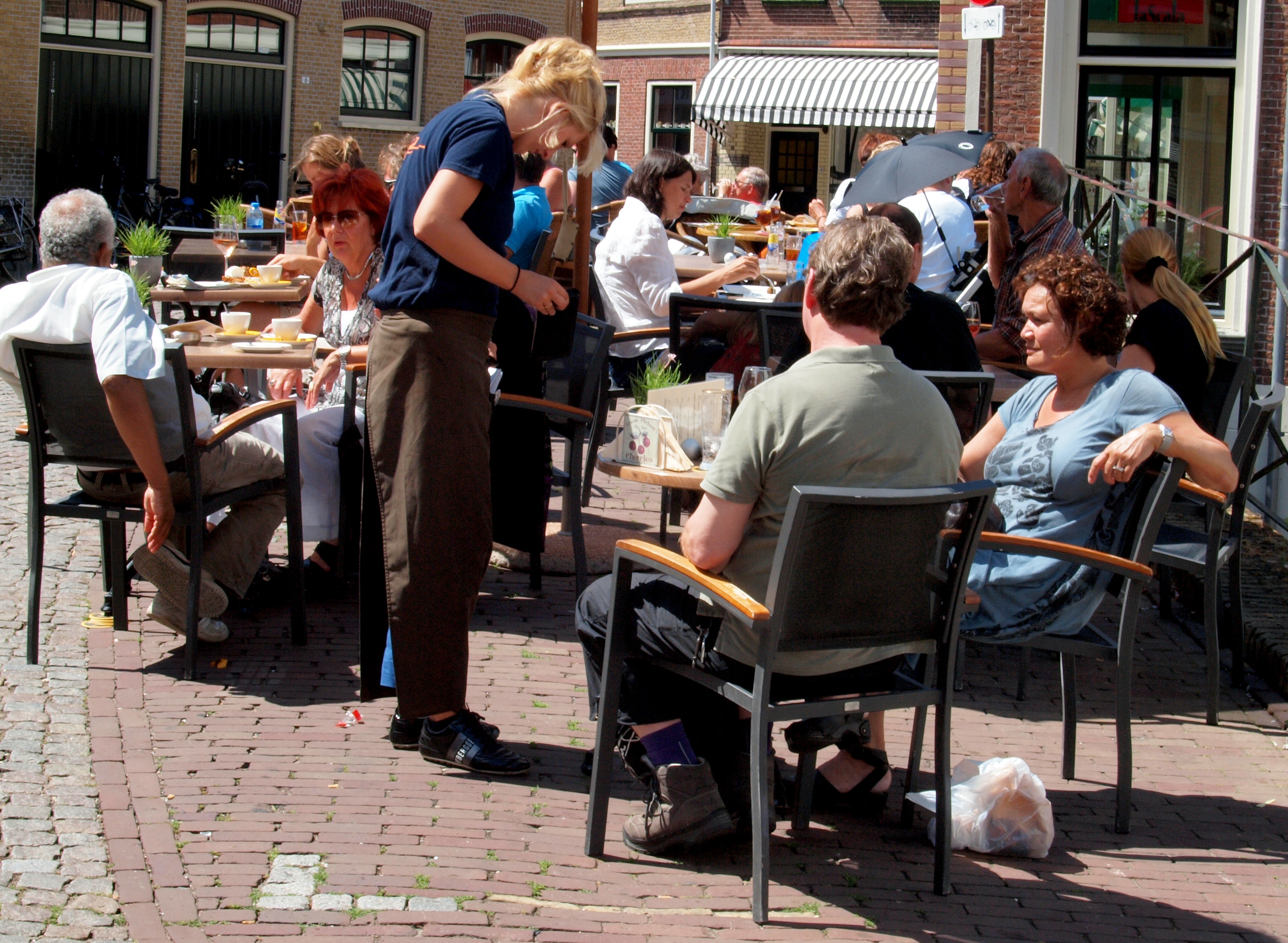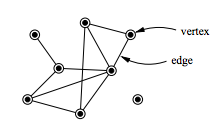|
William T. Gormley
William T. Gormley (born August 7, 1950) is a University Professor at Georgetown University. Gormley, a scholar of child care and education, is also the co-director of the Center for Research on Children. Gormley is an advocate of Pre-kindergarten, and has extensively studied programs in Oklahoma, calling it a "beacon for early childhood advocates." Biography Gormley grew up in Pittsburgh, Pennsylvania, and received his Bachelor of Arts, B.A. from the University of Pittsburgh in political science in 1972. In 1976, he received his Ph.D. from the University of North Carolina at Chapel Hill, also in political science. He then taught at the State University of New York and the University of Wisconsin, from 1980 to 1990. In 1991, Gormley became a professor of Government and Public Policy at Georgetown University, where he still teaches. He served as interim dean of the Georgetown Public Policy Institute from 2008 to 2010. Gormley's wife is a professor at George Mason University, and ... [...More Info...] [...Related Items...] OR: [Wikipedia] [Google] [Baidu] |
Georgetown University
Georgetown University is a private university, private research university in the Georgetown (Washington, D.C.), Georgetown neighborhood of Washington, D.C. Founded by Bishop John Carroll (archbishop of Baltimore), John Carroll in 1789 as Georgetown College (Georgetown University), Georgetown College, the university has grown to comprise eleven Undergraduate education, undergraduate and Postgraduate education, graduate schools, including the School of Foreign Service, Walsh School of Foreign Service, McDonough School of Business, Georgetown University School of Medicine, Medical School, Georgetown University Law Center, Law School, and a Georgetown University in Qatar, campus in Qatar. The school's main campus, on a hill above the Potomac River, is identifiable by its flagship Healy Hall, a National Historic Landmark. The school was founded by and is affiliated with the Society of Jesus, and is the oldest Catholic institution of higher education in the United States, though the m ... [...More Info...] [...Related Items...] OR: [Wikipedia] [Google] [Baidu] |
Bounded Rationality
Bounded rationality is the idea that rationality is limited when individuals make decisions, and under these limitations, rational individuals will select a decision that is satisfactory rather than optimal. Limitations include the difficulty of the problem requiring a decision, the cognitive capability of the mind, and the time available to make the decision. Decision-makers, in this view, act as satisficers, seeking a satisfactory solution, with everything that they have at the moment rather than an optimal solution. Therefore, humans do not undertake a full cost-benefit analysis to determine the optimal decision, but rather, choose an option that fulfils their adequacy criteria. An example of this being within organisations when they must adhere to the operating conditions of their company, this has the opportunity to result in bounded rationality as the organisation is not able to choose the optimal option. Some models of human behavior in the social sciences assume that hu ... [...More Info...] [...Related Items...] OR: [Wikipedia] [Google] [Baidu] |
University Of Wisconsin–Madison Faculty
A university () is an institution of higher (or tertiary) education and research which awards academic degrees in several academic disciplines. Universities typically offer both undergraduate and postgraduate programs. In the United States, the designation is reserved for colleges that have a graduate school. The word ''university'' is derived from the Latin ''universitas magistrorum et scholarium'', which roughly means "community of teachers and scholars". The first universities were created in Europe by Catholic Church monks. The University of Bologna (''Università di Bologna''), founded in 1088, is the first university in the sense of: *Being a high degree-awarding institute. *Having independence from the ecclesiastic schools, although conducted by both clergy and non-clergy. *Using the word ''universitas'' (which was coined at its foundation). *Issuing secular and non-secular degrees: grammar, rhetoric, logic, theology, canon law, notarial law.Hunt Janin: "The university i ... [...More Info...] [...Related Items...] OR: [Wikipedia] [Google] [Baidu] |
University Of North Carolina At Chapel Hill Faculty
A university () is an institution of higher (or tertiary) education and research which awards academic degrees in several academic disciplines. Universities typically offer both undergraduate and postgraduate programs. In the United States, the designation is reserved for colleges that have a graduate school. The word ''university'' is derived from the Latin ''universitas magistrorum et scholarium'', which roughly means "community of teachers and scholars". The first universities were created in Europe by Catholic Church monks. The University of Bologna (''Università di Bologna''), founded in 1088, is the first university in the sense of: *Being a high degree-awarding institute. *Having independence from the ecclesiastic schools, although conducted by both clergy and non-clergy. *Using the word ''universitas'' (which was coined at its foundation). *Issuing secular and non-secular degrees: grammar, rhetoric, logic, theology, canon law, notarial law.Hunt Janin: "The university i ... [...More Info...] [...Related Items...] OR: [Wikipedia] [Google] [Baidu] |
University Of Pittsburgh Alumni
A university () is an institution of higher (or tertiary) education and research which awards academic degrees in several academic disciplines. Universities typically offer both undergraduate and postgraduate programs. In the United States, the designation is reserved for colleges that have a graduate school. The word ''university'' is derived from the Latin ''universitas magistrorum et scholarium'', which roughly means "community of teachers and scholars". The first universities were created in Europe by Catholic Church monks. The University of Bologna (''Università di Bologna''), founded in 1088, is the first university in the sense of: *Being a high degree-awarding institute. *Having independence from the ecclesiastic schools, although conducted by both clergy and non-clergy. *Using the word ''universitas'' (which was coined at its foundation). *Issuing secular and non-secular degrees: grammar, rhetoric, logic, theology, canon law, notarial law.Hunt Janin: "The university in ... [...More Info...] [...Related Items...] OR: [Wikipedia] [Google] [Baidu] |
American Political Scientists
American(s) may refer to: * American, something of, from, or related to the United States of America, commonly known as the "United States" or "America" ** Americans, citizens and nationals of the United States of America ** American ancestry, people who self-identify their ancestry as "American" ** American English, the set of varieties of the English language native to the United States ** Native Americans in the United States, indigenous peoples of the United States * American, something of, from, or related to the Americas, also known as "America" ** Indigenous peoples of the Americas * American (word), for analysis and history of the meanings in various contexts Organizations * American Airlines, U.S.-based airline headquartered in Fort Worth, Texas * American Athletic Conference, an American college athletic conference * American Recordings (record label), a record label previously known as Def American * American University, in Washington, D.C. Sports teams Soccer * ... [...More Info...] [...Related Items...] OR: [Wikipedia] [Google] [Baidu] |
Living People
Related categories * :Year of birth missing (living people) / :Year of birth unknown * :Date of birth missing (living people) / :Date of birth unknown * :Place of birth missing (living people) / :Place of birth unknown * :Year of death missing / :Year of death unknown * :Date of death missing / :Date of death unknown * :Place of death missing / :Place of death unknown * :Missing middle or first names See also * :Dead people * :Template:L, which generates this category or death years, and birth year and sort keys. : {{DEFAULTSORT:Living people 21st-century people People by status ... [...More Info...] [...Related Items...] OR: [Wikipedia] [Google] [Baidu] |
1950 Births
Year 195 ( CXCV) was a common year starting on Wednesday (link will display the full calendar) of the Julian calendar. At the time, it was known as the Year of the Consulship of Scrapula and Clemens (or, less frequently, year 948 '' Ab urbe condita''). The denomination 195 for this year has been used since the early medieval period, when the Anno Domini calendar era became the prevalent method in Europe for naming years. Events By place Roman Empire * Emperor Septimius Severus has the Roman Senate deify the previous emperor Commodus, in an attempt to gain favor with the family of Marcus Aurelius. * King Vologases V and other eastern princes support the claims of Pescennius Niger. The Roman province of Mesopotamia rises in revolt with Parthian support. Severus marches to Mesopotamia to battle the Parthians. * The Roman province of Syria is divided and the role of Antioch is diminished. The Romans annexed the Syrian cities of Edessa and Nisibis. Severus re-establ ... [...More Info...] [...Related Items...] OR: [Wikipedia] [Google] [Baidu] |
Network Theory
Network theory is the study of graphs as a representation of either symmetric relations or asymmetric relations between discrete objects. In computer science and network science, network theory is a part of graph theory: a network can be defined as a graph in which nodes and/or edges have attributes (e.g. names). Network theory has applications in many disciplines including statistical physics, particle physics, computer science, electrical engineering, biology, archaeology, economics, finance, operations research, climatology, ecology, public health, sociology, and neuroscience. Applications of network theory include logistical networks, the World Wide Web, Internet, gene regulatory networks, metabolic networks, social networks, epistemological networks, etc.; see List of network theory topics for more examples. Euler's solution of the Seven Bridges of Königsberg problem is considered to be the first true proof in the theory of networks. Network optimization Network pr ... [...More Info...] [...Related Items...] OR: [Wikipedia] [Google] [Baidu] |
Interest Group
Advocacy groups, also known as interest groups, special interest groups, lobbying groups or pressure groups use various forms of advocacy in order to influence public opinion and ultimately policy. They play an important role in the development of political and social systems. Motives for action may be based on political, religious, moral, or commercial positions. Groups use varied methods to try to achieve their aims, including lobbying, media campaigns, awareness raising publicity stunts, polls, research, and policy briefings. Some groups are supported or backed by powerful business or political interests and exert considerable influence on the political process, while others have few or no such resources. Some have developed into important social, political institutions or social movements. Some powerful advocacy groups have been accused of manipulating the democratic system for narrow commercial gain and in some instances have been found guilty of corruption, fraud, b ... [...More Info...] [...Related Items...] OR: [Wikipedia] [Google] [Baidu] |
Steven Balla
Stephen or Steven is a common English first name. It is particularly significant to Christians, as it belonged to Saint Stephen ( grc-gre, Στέφανος ), an early disciple and deacon who, according to the Book of Acts, was stoned to death; he is widely regarded as the first martyr (or " protomartyr") of the Christian Church. In English, Stephen is most commonly pronounced as ' (). The name, in both the forms Stephen and Steven, is often shortened to Steve or Stevie. The spelling as Stephen can also be pronounced which is from the Greek original version, Stephanos. In English, the female version of the name is Stephanie. Many surnames are derived from the first name, including Stephens, Stevens, Stephenson, and Stevenson, all of which mean "Stephen's (son)". In modern times the name has sometimes been given with intentionally non-standard spelling, such as Stevan or Stevon. A common variant of the name used in English is Stephan ; related names that have found some curr ... [...More Info...] [...Related Items...] OR: [Wikipedia] [Google] [Baidu] |



